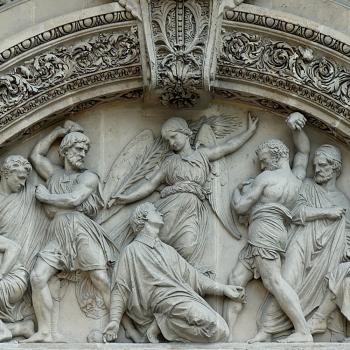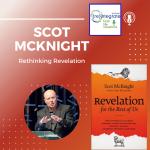Do pastors, entrepreneurs, managers, and supervisors have anything to do with the controversy over Wheaton College Professor Larycia Hawkins? Absolutely. This is not an obscure and bizarre academic controversy. It’s very relevant to your job and your company and your church.
![The faux fortifications of Wheaton College face outward, but the weaponry has been pointed inward lately.By Teemu008 from Palatine, Illinois (Blanchard Hall Uploaded by AlbertHerring) [CC BY-SA 2.0 (http://creativecommons.org/licenses/by-sa/2.0)], via Wikimedia Commons](https://wp-media.patheos.com/blogs/sites/588/2016/01/Blanchard_detail-e1453955720472.jpg)
By Teemu008 from Palatine, Illinois (Blanchard Hall Uploaded by AlbertHerring), via Wikimedia Commons
The evangelical community, the media, the blogosphere, and social media are all pretty worked up about Wheaton College political science professor Dr. Larycia Hawkins. She expressed her support for innocent Muslim women facing reprisals in America from angry political forces, after terrorist attacks and subsequent proposals of repressive policies by presidential candidates and governors. Hawkins wore an Islamic hijab head covering for Advent to show support for peaceful Muslims. In a Facebook post, she quoted Pope Francis to the effect that Muslims and Christians “worship the same God.”
Wheaton responded to the outcry–and provoked fresh outcry from her supporters—by placing her on involuntary administrative leave, issuing a series of carefully vague press releases, announcing the beginning of termination procedures, and most recently holding a carefully vague “listening session” with students and alumni. On January 21, the college’s Faculty Council unanimously called for reinstatement of Dr. Hawkins.
I could spill a lot of virtual ink recapping the story further, but there are hundreds of links to choose from. You can catch up on the story with this reasonable Washington Post story, and you can get an extended critical view of the personnel and process issues from Dr. Tobin Grant on his Corner of Church and State blog.
One of the most thoughtful responses is by Prof. Noah Toly, Hawkins’ colleague in political science at Wheaton. He writes,
… [W]hile my answer to the question [“do Christians and Muslims worship the same God?”] might be described as “a complicated ‘no’” – much closer to and more sympathetic with a “complicated ‘yes’” or a “yes and no” than it is to a simple “no” – I am not persuaded by suggestions that this is a simple question. [Emphasis added] I seriously doubt that appeals to the Trinity, to Christology, or to the self-sacrificial love of the Christian God, as important as these are, can do all of the work necessary to answer it in a sophisticated way (though it’s worth noting that Muslims find the first two irreconcilable with Islam). Many of the conversations that attempt to answer this question are exercises in futility because the terms, including such basic matters as what it means to be the same or different, are inadequately defined.
Another very fine response comes from former Wheaton English professor Alan Jacobs, now at Baylor University, who writes for The American Conservative. His essay “I’m Thinking it Over” eloquently and humorously condemns the rush to judgment that social media encourages.
With thanks to Dr. Jacobs for slowing me down, I think many weeks of rumination are enough. I’m ready to write my thoughts down.
Leadership lessons from the Hawkins controversy
Where Jacobs uses the Hawkins case to critique the hasty culture of social media, I would like to use it to understand organizational leadership. How should Christian leaders in churches, communities, businesses, and nonprofits respond to cases like this one?
First, is this situation relevant? Do pastors, entrepreneurs, managers, and supervisors have anything to do with an academic freedom and tenure dispute laced with public accusations of heresy and counterclaims of racism?
Absolutely. This is not an obscure and bizarre academic controversy. It’s very relevant to your job and your company and your church. The media lights are brighter and the angry rhetoric is fiercer, but this is the same kind of dispute that has pastors leaving churches in bitterness, corporate executives battling employee turnover and low morale, and communities aching for political talent.
Second, did Wheaton do the right thing? No. Their first words to Professor Hawkins should have been: “We’re with you.” Yes, Wheaton has religious liberty and institutional authority to set theological and ethical standards for its faculty and students. Wheaton has every right to fire employees for cause. Actual resistance to Christian doctrine has no place at Wheaton.
But the institution’s rights are not the same thing as the right thing for the institution to do. Wheaton’s leaders overreacted hugely. They appear to adhere to a painfully common myth about leadership: when someone on your team angers an important constituency, it’s your job to “be tough,” “make the hard choice,” “have the hard conversations” and … fire the subordinate? No—fire back at the constituency. Every time. That’s the hard conversation, that’s being tough. Employees are easy targets to knock down; convincing constituents to work at understanding, now that’s a hard choice to make.
“The customer is always right” may be how we teach others to respond to our constituents with graciousness, but it is not a good way to manage our teams. “My colleagues are always right” is a better and more effective ethic for leaders.
Does accountability mean “heads must roll”? Only under extreme circumstances. The leadership model is unwise, uncharitable, and counterproductive. Effective leadership is protecting your subordinates from external pressure, not intensifying it.
Personally, I believe Hawkins deserved a public endorsement, not a punishment. She certainly didn’t deserve more than a private slap on the wrist, let alone public discipline. But suppose for the sake of argument that she was indeed in serious error. It’s still exactly wrong to believe that the shame of involuntary leave by press release is the right means to reinforce Wheaton’s community standards.
As with good improvisational comedy, the right response of leadership to a teammate’s lead is not “No, but,” it’s “Yes, and…” Contradicting a team member publicly threatens the coherence of the team and undermines the very foundations that make the institution’s message authoritative. The public spat that has resulted does not cement Wheaton’s reputation as a voice of orthodoxy, it damages it.
A “Yes, and …” leadership response to the controversy
Instead of a weeks-long awkward silence from the college president, the public relations strategy could have composed something like this:
Yes, Professor Hawkins!
At Wheaton, we all admire and commend Pope Francis’ effort and yours to live out the Beatitude, “blessed are the peacemakers.” Christians should recognize and protect the image of God in Muslims and every other human being, and should honor the efforts of Muslims, Jews, and other Abrahamic faiths to glorify the Creator of all things.
I see that some commentators are misconstruing your quote of Pope Francis as if you (and the Pope, and your many admirers among our faculty, students, and alumni) were saying that there’s no difference between Christianity and Islam, that doctrine doesn’t matter, that Muslims know God as well as Christians. How quickly a debate about interfaith relations becomes a debate between broad Christian traditions and then within small Protestant communities!
Though some among our constituency have expressed concern over your statement, rest assured that we who know you best are assuring them of your strong and orthodox faith. We know your words and your practice reflect your devoted effort to follow the One you publicly confess to be the Way, the Truth, and the Life, without Whom no one comes to God.
Your signature on our Statement of Faith is as strong a confirmation of your orthodoxy as anyone can ask for. Our little community examines and reexamines your faith and your colleagues’ faith, from recruitment through reappointment to retirement, with exhaustive thoroughness—and, truth be told, in exhausting detail. If the Christian community can’t give a Wheaton College professor the benefit of the doubt in a verbal pinch, whom then will we trust? Will there be a pastor or a youth leader or a musician or a poet who can speak her mind when God prompts a prophetic insight?
Your reminder to us that Muslims, too, seek our God is scandalous for us to hear, not because we know God so well, but because we forget, in our fallen, self-satisfied pride, that when He came to us as Jesus Christ, he bore the scandal of being born to a manger, the scandal of dining with hated tax collectors, the scandal of dying on the cursed Roman cross, the scandal of being poked by Thomas’ doubting hands. Our Lord Jesus bore the scandal of speaking with a Samaritan woman, she who was despised by Jews for her ethnicity and religion and who was shunned by her neighbors for her depraved lifestyle.
We can agree with your critics that Muslims do not worship God as a person of such scandalous self-sacrificial mercy. We see some merit in the critics’ rejection of the words of Pope Francis you quoted, if only because leaving them to stand alone implies a logical generality that neither you nor he intended. We understand that most Christian believers in the Middle East also insist that they do not worship the same God as Muslims. Though their ancestors called God “Allah” long before Islam was founded, the identical nature of the name they pronounce does not indicate the identical nature of the person of God they worship. There is no supernatural sameness to justify the statement.
However, we also recognize that your intent and that of Pope Francis was more diplomatic than theological, calling on the common, human, historical origins of the three Abrahamic religions. We understand that your statement of “religious solidarity” to call attention to injustice is not also a statement of theological consensus with Islam. It is certainly true that Muslims and Christians both aim to and claim to worship the same historical character in human history, the God of Abraham. We can insist that Muslims have lost touch with His supernatural character without rejecting Muslims’ acknowledgement that the Creator revealed Himself to Abraham.
In short, we Christians believe that while Muslims may seek in human terms to worship the same God as Christians, unless they acknowledge Jesus as God’s Son, they will always ultimately fail to worship Him in spirit and in truth.
Yet even as we affirm this difference, we can join with Christians of all faith traditions in celebrating our God’s sovereignty. God’s mercy is found only through faith in Christ, but He will have mercy on whom he will have mercy. We trust Him that many who worship God in error without Christ today will worship Him in truth with Christ tomorrow. That is one reason our College has sent so many missionaries to the Muslim world! We may point to errors, but we may not damn today those whom God may save–through Christ’s historic work on the cross–tomorrow.
We teach the liberal arts at Wheaton to strengthen and refine our faith. We perceive the vast extent and incomparable beauty and unfathomable complexity of the Kingdom of God that already exists. As our late great philosopher Dr. Arthur Holmes taught us so well, all truth is God’s truth. We need not fear the name Allah, for it belongs to God, and He will make Himself known. If He can use the stutterer Moses and the corrupt prophet Balaam’s donkey and the homicidal philanderer king David and the murderous dogmatist Saul, He can use a truth found in a Muslim prayer to teach a Wheaton student how to find something new and wonderful in the Gospel. As the Christian Reformed believers at Calvin College testify, our world belongs to God.
I hope that all our Christian brothers and sisters will come together to support you and join with you as you go forth, as Jesus did with the woman at the well, to present our Muslim neighbors with incarnate evidence of the scandal of His love and mercy, a peacemaking Savior so committed to His mission of mercy that He loved His enemies and laid down His life for them. We have this great confidence in our Savior and Lord, that His presence in your ministry of reconciliation will win many new citizens for His Kingdom.
The main point of this draft letter is that this statement defends the colleague’s integrity before the public, endorses the scandalous parts that are essential to Christianity and the College’s educational mission, and takes responsibility for any desired course corrections. It demonstrates how the College leadership understands the issue and models the desired language. If you object to my theology and my politics, can you offer a more orthodox, politically acceptable, institutionally appropriate letter that does the same things?
The same approach is necessary for a church elder when the pastor gives a controversial sermon, for the sales manager when a salesperson says something critical about the product to a customer, for the political leader when a campaign volunteer misrepresents the issue position. If they’re willfully rebellious and sabotage your message, by all means fire them. But when the error or miscommunication is well-intentioned, use it to strengthen your team and broaden your message.
Lead this way, instead of hanging back and expecting your colleague to guess what to say to satisfy your standards, or instead of scripting some words of retraction to be artificially planted in her mouth. Both strategies earn well-deserved and universal derision. If there’s to be public controversy, the leadership should shoulder it, not hang it on the employee.
What now? Stand up to Franklin Graham!
Franklin Graham, son of evangelist and Wheaton alumnus Billy Graham, has been campaigning hard on social media against Professor Hawkins. Graham sees no flaw in using Hawkins’ statement as a means to expel her fully from the academy and, by implication, from the faith. Graham links it to teaching students, implying a risk to their vulnerable minds and malleable futures: “How the faculty council can now support this professor being allowed to teach students is deeply concerning.”
By questioning the judgment of the faculty council, Graham has unwittingly provided Wheaton officials and trustees with a golden opportunity to recover their standing as leaders. Where they failed to defend Hawkins individually, now they can and must defend the orthodoxy and wisdom of the faculty council. The reputation of Wheaton’s faculty has been impugned by the influential scion of an even more influential alumnus. The faculty have to know that the administration will defend them, now and always.
The best way to turn things around? Back the faculty council and reinstate Dr. Hawkins with the tenure she was promised and a public apology for the media exposure.
It’s time to stop letting the accuser (Greek diabolos, also translated “devil”) shape the conversation and start rejecting accusational politics in the church. That is the surest way to win through, because, as James teaches us, mercy triumphs over judgment.
Stay in touch! Like Charting Church Leadership on Facebook:











